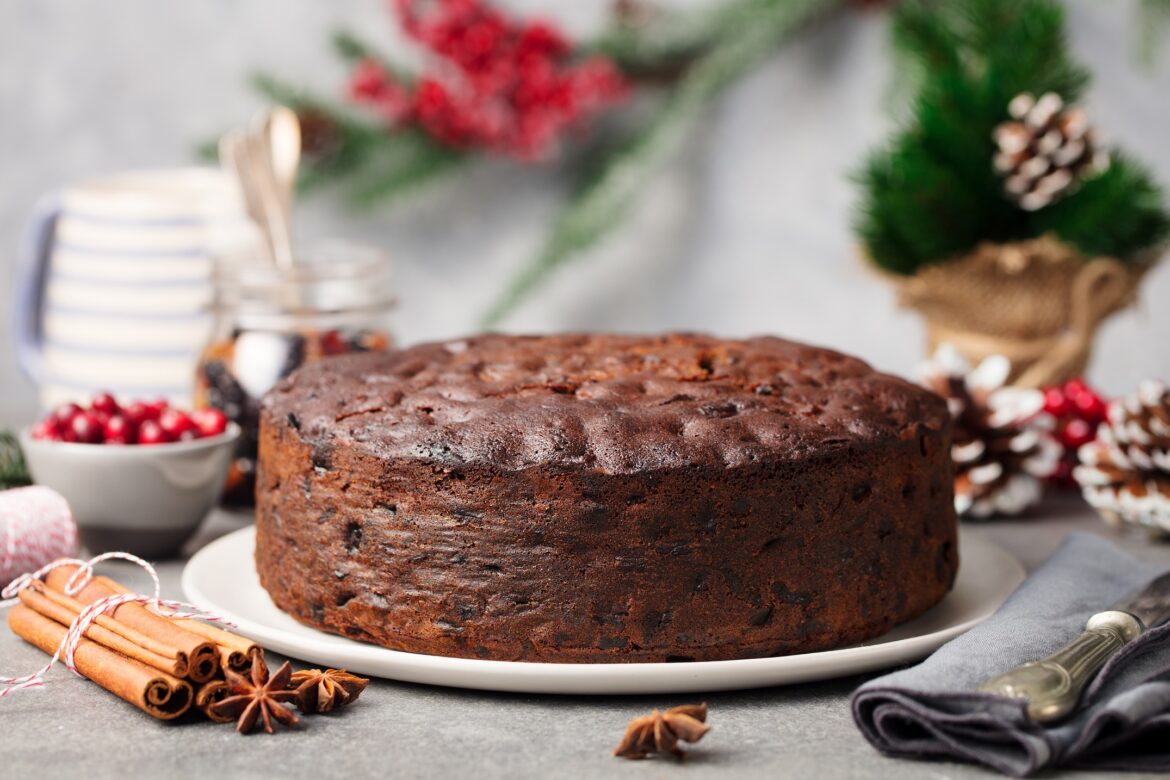In 1994, Jimmy Buffet belted out the song “Fruitcakes” to describe how eccentric each one of us can be at times: “Fruitcakes in the kitchen, fruitcakes on the street…there’s a little bit of fruitcake left in every one of us.” His catchy, comedic lyrics, paired with a tune that seeps into your soul and keeps you singing in the shower, helped propel his album of the same name to a Top 5 Billboard 200 ranking, his first album to rank that highly. The song packs a powerful political statement, but what does fruitcake have to do with any of it? Well, because it’s the holiday season, a time when fruitcakes abound, we are here to break down some of the cultural connotations that have developed alongside this unique, controversial dessert.
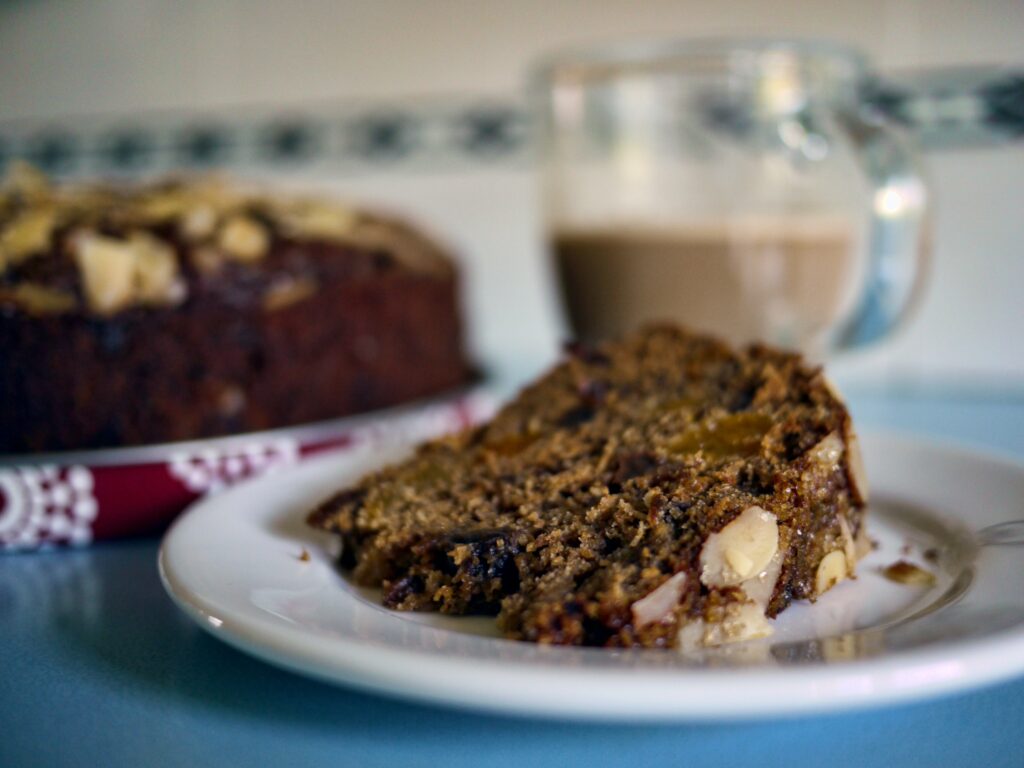
What and Who is a Fruitcake?
According to the Merriam-Webster dictionary, a fruitcake is “a rich cake containing nuts, dried or candied fruits, and spices.” The version with which Americans are familiar is typically soaked in rum or brandy and allowed to “age” for at least three months before eating, giving the alcohol time to properly flavor the cake. But if we take a look at the second definition, we begin to understand a completely different meaning: “a foolish, eccentric, or crazy person.”
Since at least 1913, the phrase “nutty as a fruitcake” has been whispered behind others’ backs when all other words have failed. “Fruitcake” has also been used to describe those with homosexual orientations, thanks in part to the association between queerness and fruit that may have begun as early as 1593. Buffett was referring to the first metaphor, not the second, but regardless, his use of the term demonstrates how prominent the delicacy has been in our discourse for centuries.
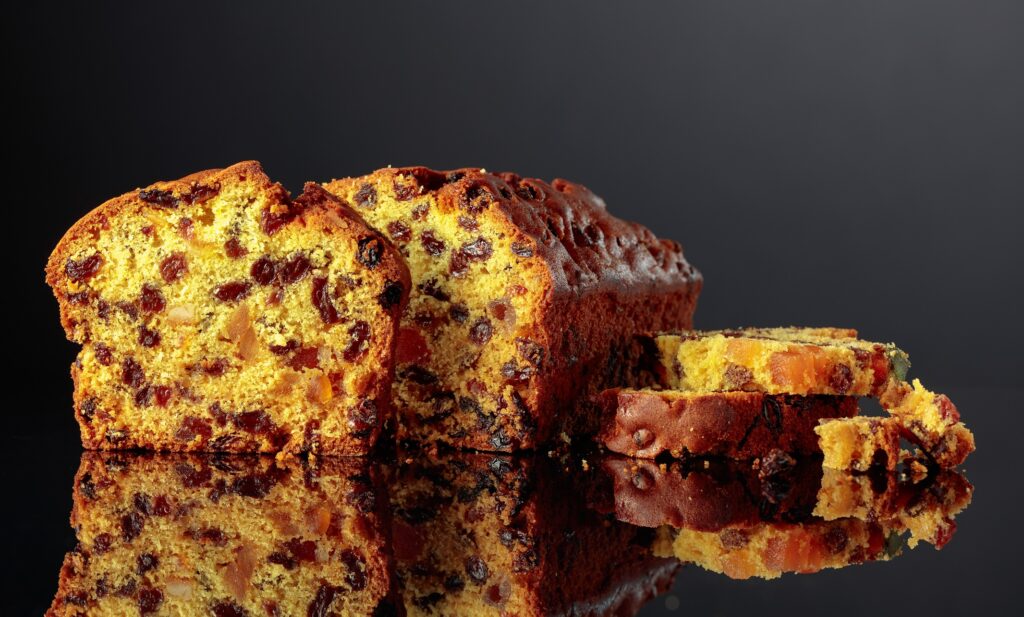
Fruitcake’s Ascent to Glory
Though fruitcake originated in Ancient Rome, it was in Medieval Europe that it evolved into the two styles we know today: fruited bread (like stollen and panettone) and a variety more similar to cake (popular in Great Britain). As you might expect, the American fruitcake’s modern form is a relic of British colonialism. In India, too, it is still widely enjoyed and, for many families, regardless of religion, an essential component of the Christmas season, if not a year-round treat. You can find fruitcakes in many other countries with European influence.
A few centuries ago, a major part of fruitcake’s appeal corresponded to the increased availability of sugar at the time, which could be used to candy fruits for long-term storage. Shoppers also appreciated that fruitcake does not require refrigeration; indeed, refrigerators were not mass-produced until 1918.
Through the mid-1900s, fruitcake sold in tins and delivered by mail was all the rage. If Instagram and TikTok had been around back then, influencers would be devouring them and putting them on their holiday gift guides each year. But for cultural, political, and scientific reasons, our taste buds have adapted, and now, the sweet, rummy, heavily spiced delicacy is not for everyone. Or is it?
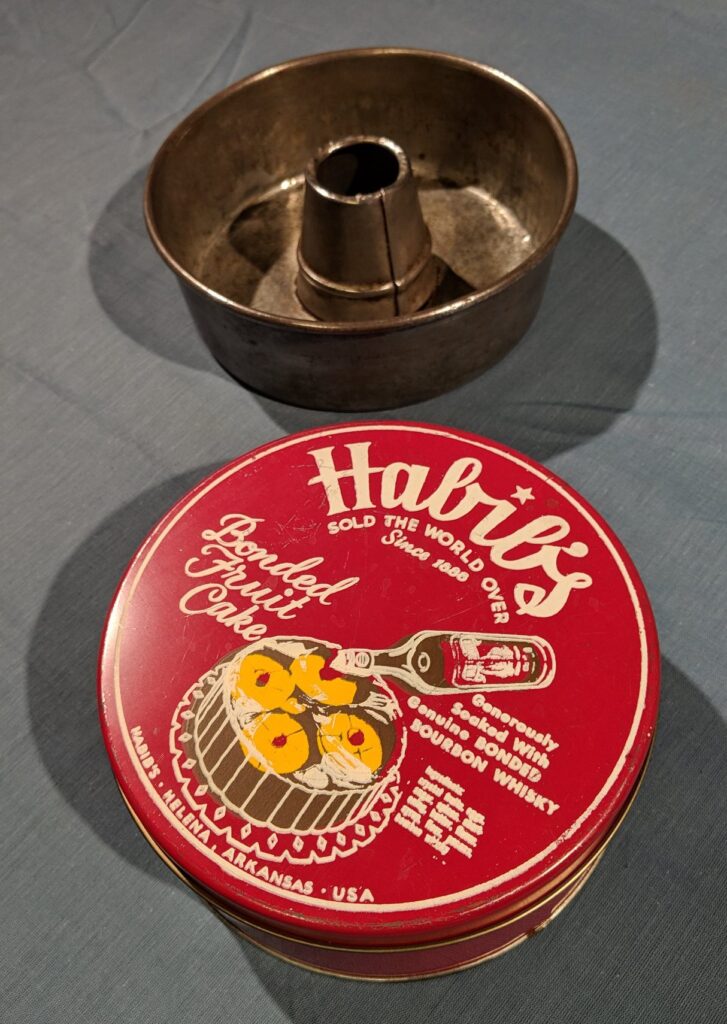
According to the Helena Museum’s Facebook post, the local post office had to open up a dedicated space in its cafeteria one holiday season in the 1950s to process these high-demand mail-order cakes.
Fruitcake’s Fall from Fame
Sometime after the 1950s, we got tired of fruitcake. We started to condemn it and think of it as something only the elderly eat. One of the very things we loved about fruitcake – that it doesn’t require refrigeration – even became a point of critique: how could something taste good or be hygienic after sitting out for so long? On national television, household names like Johnny Carson of the “Tonight Show” criticized fruitcake”; Carson went so far as to call it “the worst Christmas gift.” It was also negatively portrayed by author Barbara Park, who titled one of her books, Junie B. Jones and the Yucky Blucky Fruitcake (1995). Who would want to try fruitcake after descriptions like that?
More than we think, we are influenced by what others say we should and shouldn’t like. Our culinary preferences are no different and can often function as a sign of social capital. For example, imagine someone spreading Cheez-Wiz on crackers and someone else slicing up a fresh wheel of gouda. Notice the difference in the two pictures? So when our culture’s jokes and common discourse tell us that fruitcake is something gross, most of us would rather be caught dead than give it as a gift or eat it at a party. Simply put, fruitcake just isn’t cool anymore.
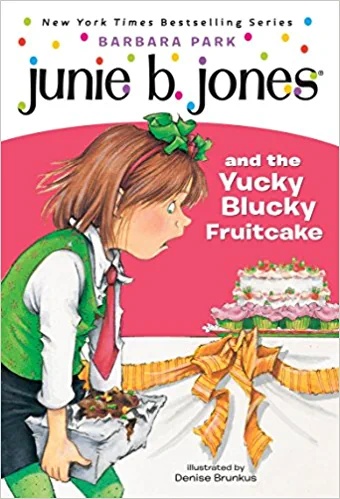
To prove that our taste preferences are largely shaped by culture, PR agency Ketchum released a video in 2015 in which they asked strangers to try fruitcake in Times Square. When they extended the tray and called it “fruitcake,” few people wanted to try it, but when they offered it as “holiday cake,” not only was the demand much greater, but everyone enjoyed it, saying that it was “really good” and “delicious.” Nevertheless, despite its former popularity, many people will go their entire lives without trying fruitcake.
Are You Ready to Give it a Try?
If you believe, like Jimmy Buffett, that “there’s a little bit of fruitcake left in every one of us,” and if you’re ready to give fruitcake a try, consider using one of the following recipes or purchasing from one of the listed brands. We think you’ll find that it’s better than you ever imagined!
Recipes:
- Super Moist Fruitcake (by Bincy, author of MerryBoosters)
- Free Range Fruitcake (by Alton Brown)
- World’s Best Fruitcake (by Laura, author of A Beautiful Plate)
Brands:
- Eilenberger’s Bakery
- Collin Street Bakery (for bite-sized treats)
- The Nuns of New Skete
 Food
Food Farmers
Farmers Sustainable Living
Sustainable Living Living Planet
Living Planet News
News